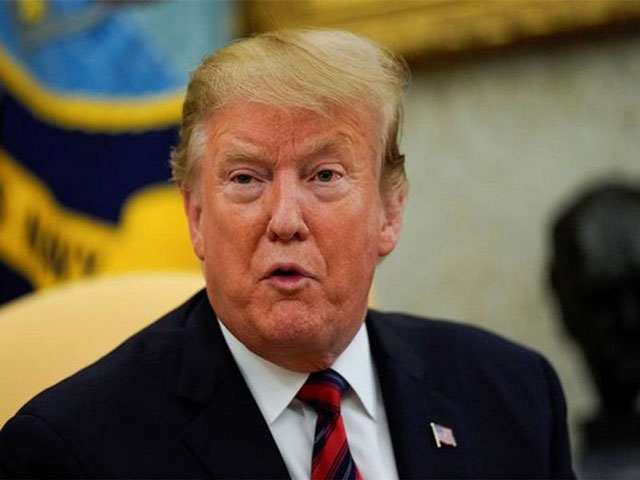Daijiworld Media Network – Washington
Washington, Sep 26: In a sweeping trade move, United States President Donald Trump on Friday announced that his administration will impose a 100 per cent tariff on all imported branded and patented pharmaceutical drugs beginning October 1, 2025, unless the companies manufacturing them have production facilities under construction in the US.
In a post on Truth Social, Trump said, “Starting October 1st, 2025, we will be imposing a 100% Tariff on any branded or patented Pharmaceutical Product, unless a company IS BUILDING their Pharmaceutical Manufacturing Plant in America. ‘IS BUILDING’ will be defined as ‘breaking ground’ and/or ‘under construction.’”

He clarified that firms which have already started building plants in the US will be exempted from the new rule.
Alongside, the President also unveiled tariffs on household products and furniture, further tightening trade restrictions. He announced a 50 per cent tariff on imported kitchen cabinets, bathroom vanities and related products, and a 30 per cent tariff on upholstered furniture, effective October 1.
Trump justified the move by alleging that foreign manufacturers were “flooding” the US market. “It is a very unfair practice, but we must protect, for national security and other reasons, our manufacturing process,” he said.
According to the Bureau of Labour Statistics (BLS), US furniture prices have already risen by 4.7 per cent compared to August 2024, with living room and dining room furniture showing a sharp 9.5 per cent increase in the past year. The hike comes after tariffs were previously imposed on Chinese and Vietnamese furniture — both major exporters to the US.
In addition, Washington has also rolled out new tariff rates for dozens of countries. These include:
• 50 per cent tariffs on Indian goods (with an extra 25 per cent penalty for trade with Russia),
• 50 per cent on Brazilian goods,
• 30 per cent on South African goods,
• 20 per cent on Vietnamese goods,
• 15 per cent each on Japanese and South Korean goods.
Analysts warn that the measures could lead to another round of inflation in essential categories, particularly medicines and household products, while Trump maintains that the tariffs are necessary to revive domestic manufacturing and safeguard US industries.